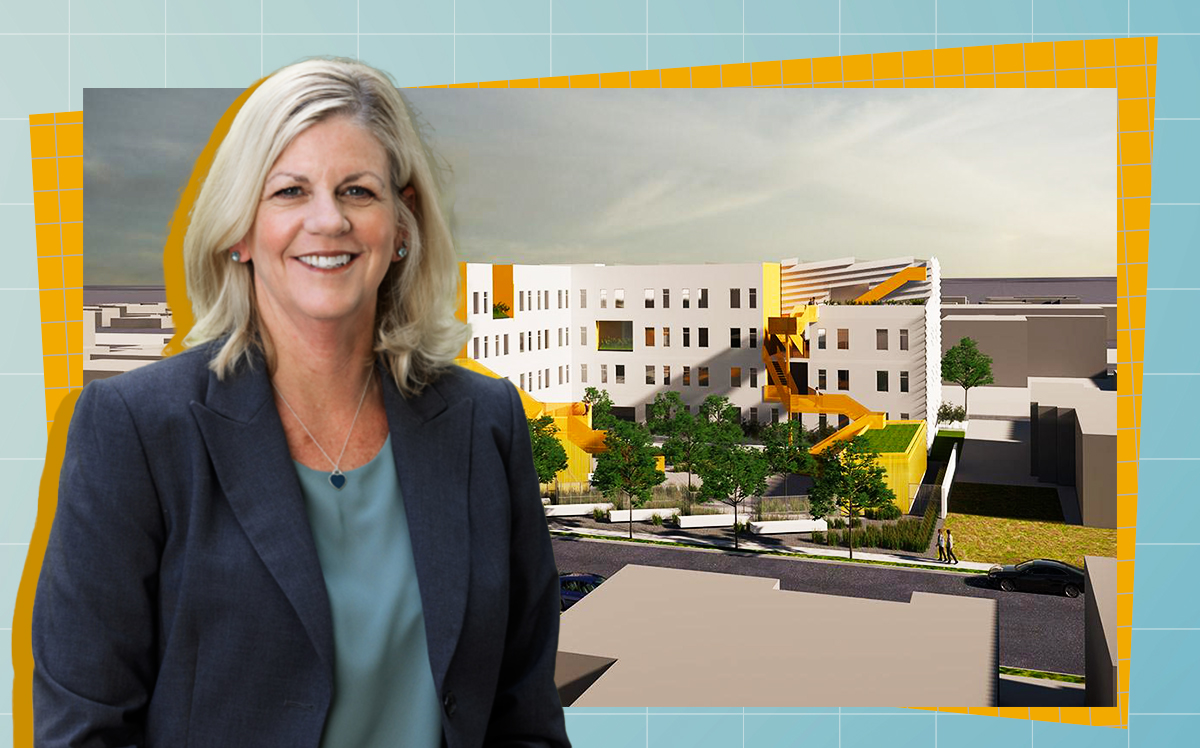Skid Row Housing Trust, the largest owner of affordable housing along L.A.’s Skid Row, is itself on the verge of becoming down and out.The nonprofit developer, based in Downtown, is struggling to stay afloat long enough to divest 29 properties that house thousands of low-income tenants across the city, the Los Angeles Times reported.
Skid Row Housing, a pioneer since 1989 of a movement to revive aging Downtown real estate as homeless housing, has been working with other housing providers to take over its real estate portfolio.
In a series of meetings with staff on the organization’s situation, interim CEO Joanne Cordero sought to assure 165 employees that other philanthropic and housing agencies were stepping in to ensure no tenants would be tossed to the curb.
“Everybody is coming together to help figure this out and to support the residents,” Cordero told the Times.
Local charities, from the Weingart Foundation to the Hilton Foundation and Cedars-Sinai, have pledged hundreds of thousands of dollars to keep the agency afloat while it works to hand off its housing complexes.
The demise of Skid Row Housing Trust highlights the vulnerability of the housing model. For decades, it has been a pillar of Los Angeles nonprofit housing by building and managing nearly 2,000 units in SRO buildings and permanent supportive homes.
“Skid Row Housing Trust is not only an institution in the region for providing much needed housing for people on the margins, it really led in creating a norm of permanent supportive housing,” said Miguel Santana, chief executive of the Weingart Foundation, which chipped in $200,000 late last year to help keep the organization solvent. “Their footprint in L.A. is significant.
“So it’s unfortunate that it has gotten to this point with their finances where they’re not able to maintain the breadth of assets they have.”
The Hilton Foundation also donated $250,000 and Cedars-Sinai’s philanthropic arm gave $150,000 to help the trust stay solvent in the near term.
But several years of running deficits of as much as $14 million per year, according to its own financial disclosures, left Skid Row Housing struggling to pay employees and its bills.
In recent years, the agency has pivoted toward new construction, building structures that enhance Skid Row. It has completed three projects with about 250 with funding from Proposition HHH, the $1.2 billion housing bond approved by Los Angeles city voters in 2016.
The nonprofit developer had just filed plans to build a 90-unit complex for formerly homeless residents in South Los Angeles, its first project south of Interstate 10.
But a portfolio dominated by century-old buildings became increasingly hard to support. As maintenance costs outstripped revenue, hundreds of units remained in uninhabitable condition after tenants left, creating a vicious cycle of declining rents.
Occupancy at the trust’s buildings has dipped to about 78 percent, Cordero said.
“You get residents who have some kind of a meltdown, and they destroy their unit,” Cordero told the newspaper. “And then we figure out how to get them the services they need and then they come back, and they destroy the new unit that they have gotten into, and then they destroy the third unit.”
A series of leadership changes, including three CEOs, and an exodus of talent followed the 2018 retirement of its visionary longtime leader Mike Alvidrez. These left the agency ill-equipped for the type of restructuring needed to keep it afloat.
Financial disclosures posted on its website show the trust in 2018 had $21.67 million in revenue and $39 million in expenses.
Cordero, who took over as CEO last fall, declined to speak about the trust’s current financial condition, or explain the shortfalls of previous years. In 2020, the agency posted a report that showed it had $28 million in revenue and $41 million in expenses.
Last summer, the state Housing and Community Development Department and the Los Angeles Housing Department, which both hold notes on the trust’s older properties, began filing notices of default, a city housing official said.
By year’s end, the agency’s financial condition reached such a crisis that the philanthropic organizations had to step in to ensure it could meet payroll.
Read more


